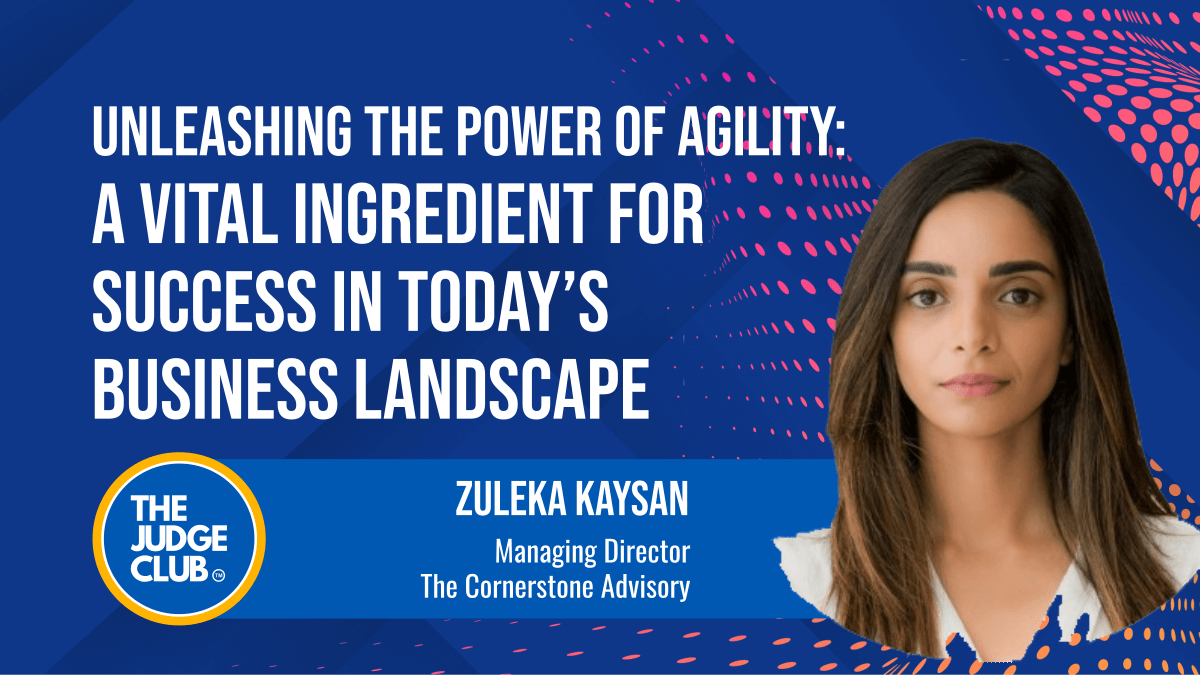Today’s ever-evolving business environment has put forward one crystal clear message: agility is not merely a benefit; it’s essential. But what is business agility, and why has it become a linchpin for modern success?
Business agility refers to the ability of an organisation to swiftly adapt to market changes, internally and externally. It encompasses prompt decision-making, the rapid development of new products or services, and effective adjustment to disruptions, all while maintaining continuous business operations. Simply put, an agile business is one that is equipped to navigate the changing tides of its industry, regardless of how turbulent the waters may get.
Why is agility so crucial in today’s business landscape?
The digital age has ushered in unprecedented levels of market volatility and competitiveness. Consumer needs are shifting faster than ever, and businesses that cannot pivot quickly find themselves lagging. In such a landscape, agility provides the capacity to foresee, respond to, and capitalise on these changing conditions. By being agile, businesses can seize opportunities, counter threats more effectively, and thereby maintain a competitive edge.
So, how does a business go about nurturing agility?
Anchor Operations to Customer Centricity
By consistently placing the customer at the heart of decision-making, businesses can ensure their operations remain relevant and effective. After all, understanding and addressing customer needs is the most fail-proof strategy for business success.
Anchoring your operations in customer-centricity means continuously asking: “How does this benefit the customer?” Amazon is a prime example of this principle. They built their entire business model around their mission statement: “to be Earth’s most customer-centric company.” This customer-first approach has seen them continuously innovate, from introducing one-click shopping and customer reviews in the late ’90s to pioneering drone delivery services, all in response to consumer demands and habits.
Continuous Improvement Focused on Simplicity
By refining and simplifying processes, businesses can be more responsive and adaptive, thereby increasing overall agility. Streamlined operations reduce complexity, allowing for faster responses to changes and improvements in productivity.
Toyota’s ‘Kaizen’ approach is an excellent illustration of continuous improvement centred on simplicity. Kaizen, a Japanese word meaning “change for better,” involves making small, incremental changes to processes, which lead to substantial improvements over time. For instance, Toyota empowered each employee to halt the production line if they spotted an issue. Though this resulted in many temporary stoppages, it also led to quicker issue resolution, ultimately enhancing productivity and reducing long-term downtime.
Fail Fast and Learn Quickly
Lastly, adopt a mindset of failing fast and learning quickly by integrating mitigated risk management. This approach encourages quick experimentation, propelling businesses towards innovative solutions while minimising negative impact. This fosters a culture of creativity and resilience, key ingredients in the recipe for agility.
Elon Musk’s SpaceX is a fitting example of mitigated risk management. SpaceX conducts many small, relatively low-cost tests of its rocket technology. While many of these tests fail, they provide valuable data that guides future design decisions without incurring the massive costs of a failed full-scale launch. This method allows SpaceX to innovate at a faster pace and at a lower cost than more traditional aerospace companies.
Business agility is no longer a luxury; it’s imperative for survival and growth. By anchoring operations in customer-centricity, embracing continuous improvement, and adopting a fail-fast mentality, businesses can foster agility, ensuring they remain competitive and resilient in the face of change. To be successful, this requires an innovation culture and the organisational structures to support that culture.
Today, the question isn’t whether your business can afford to be agile—it’s whether your business can afford not to be.
—
We share practical tips to help businesses become more agile at both an organisational and individual level in our webinar here: https://bit.ly/Webinar-Agility
If you want to get ahead by getting to grips with the human side of innovation, sign up to learn more here: https://bit.ly/Innovation-Waitlist
—
About Zuleka
Spurred by her 18-year career delivering business transformation and change in fast-moving corporations with ambitious mandates, Zuleka Kaysan founded The Cornerstone Advisory to democratise innovation. She helps visionary leaders elevate their performance through an integrated approach; enhanced customer experience, innovative service design, and a fit-for-purpose culture.
Connect with Zuleka here: www.linkedin.com/in/Zuleka

